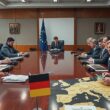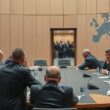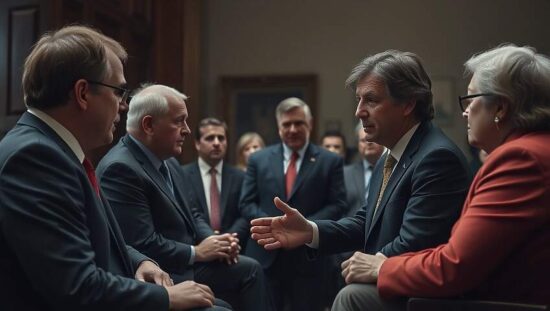The Saxon state premier, Michael Kretschmer of the Christian Democratic Union (CDU), has ignited a fierce debate within Germany and across Europe with his forceful advocacy for a return to energy imports from Russia. In statements given to the Funke-Mediengruppe newspapers, Kretschmer argued that sanctions against Russia must be reassessed through the lens of Germany’s own economic interests, signaling a potential shift in the government’s approach to the ongoing conflict.
Kretschmer’s position challenges the prevailing sentiment of “never again Russia” dismissing it as a flawed perspective. He envisions a future where Russia re-establishes itself as a trading partner, albeit with safeguards to prevent a return to previous levels of dependency. His justification centers on the belief that robust economic strength is inextricably linked to national security, suggesting that Germany’s defensive capabilities are undermined by its current energy isolation.
The premier’s remarks also express a palpable frustration with Germany’s diminished influence on the European and international stage. Kretschmer lamented that Europe has effectively forfeited its competitive advantage – access to affordable energy – while simultaneously committing substantial financial and military support to Ukraine, all without a corresponding ability to shape the conflict’s trajectory. This criticism directly implicates the policy of prioritizing moral obligations and geopolitical posturing over pragmatic economic realities.
While acknowledging the necessity of maintaining a strong defense posture in the face of Russian aggression, Kretschmer’s words have drawn immediate condemnation from opposition parties and human rights organizations. Critics argue that advocating for a return to Russian energy imports risks legitimizing President Vladimir Putin’s regime and potentially rewarding its actions in Ukraine. The argument that economic strength necessitates a relationship with Russia also raises concerns about the long-term implications for European energy security and the potential for renewed political coercion. The debate underscores a deepening divergence within German political discourse regarding the balance between security, economic stability and ethical considerations in the face of ongoing international conflict.





